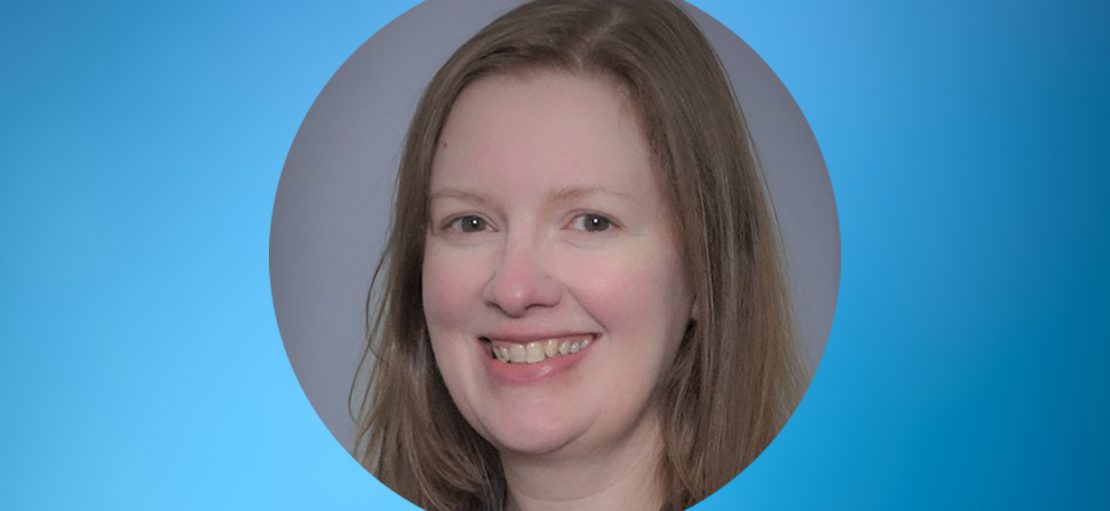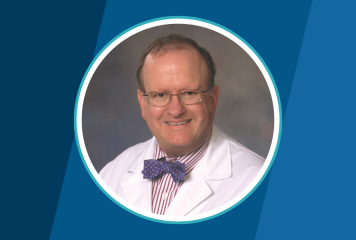Catherine McCall, MD, is a sleep medicine physician at VA Puget Sound Health Care Center, Assistant Professor of Psychiatry and Behavioral Sciences, and Adjunct Assistant Professor of Pulmonary, Critical Care and Sleep Medicine at the University of Washington School of Medicine. She is board certified by the American Board of Psychiatry & Neurology (ABPN) in Psychiatry and Sleep Medicine. Dr. McCall was appointed chair of the Sleep Medicine Traditional, 10-Year Maintenance of Certification (MOC) Exam Approval Committee in 2024 after serving two years as a member.
What inspired you to specialize in sleep medicine, and how did your background in psychiatry shape your approach to this field?
I can’t remember a time when I didn’t find sleep and mental health to be really interesting topics, and I’ve always felt they were closely related. I graduated with a degree in psychology and at that time was interested in pursuing sleep as a career, but didn’t have a clear direction about how I wanted to proceed. I turned to a career in technical writing, but never lost my interest in sleep and mental health. After a number of years, I was volunteering in a hospital and realized a love of service and patient care, which led me to a career in medicine. I entered medical school with the intent of applying for residency in psychiatry and a fellowship in sleep medicine. I was fortunate to have incredible mentors who continued to foster my interest in the intersection of those two fields.
My training in psychiatry has informed my clinical care in sleep medicine in a number of ways. It included training in psychotherapies, which has been very helpful in implementing gold-standard treatments for problems like insomnia, nightmares, adjusting to sleep apnea treatments and employing motivational engagement. My training in psychopharmacology has also been useful in sleep medicine. Psychiatric comorbidities are so common in patients with sleep disorders, so having experience with both sides of that picture has been really helpful. Because sleep medicine is so interdisciplinary, I have also enjoyed learning from my teachers, mentors, and colleagues in other specialties. It’s been a wonderful experience to come together with other physicians in that way.
What aspects of your career do you find most fulfilling, and how do you maintain your passion and curiosity in such a demanding field?
There are so many fulfilling aspects of sleep medicine. From a clinical perspective, I enjoy having a variety of activities, including outpatient clinic, sleep study interpretation and inpatient consults. It is a unique privilege to be invited into a patient’s personal experience of sleep, and rewarding to see how treating sleep disorders can extend to improvements in their physical and mental health. Participating in scholarly activities, research and writing, and serving on committees helps keep my finger on the pulse of changes happening in this quickly evolving field.
What perhaps brings me the most joy is teaching. I work closely with the sleep medicine fellows at the University of Washington. Sharing my fascination with sleep with them and seeing their curiosity and interest in the field grow is extremely rewarding. I think that finding joy in one’s specialty is really important to enhance patient care and reduce burnout.
What made you interested in serving on the Approval Committee when you first joined? What has been rewarding about your experience and what are you looking forward to as your term as chair begins?
I became interested in serving on the Approval Committee because of my work in education, having taught sleep fellows for a number of years and having seen how important it was to continually assess their knowledge. Trainees come to us from many different specialties and have deep wells of knowledge in some areas but not others, so question-based learning is a great way to fill those gaps and help them become more well-rounded physicians. It felt like a natural extension of that kind of work to be involved in a process that ensures certifications are fair, equitable and able to validate the hard work of physicians to become competent in caring for patients with sleep disorders.
What goes into writing a good question? What about writing for sleep medicine assessments is challenging or different than other areas of medicine?
A good question is one that is clinically relevant, concise, uses clear language, provides the opportunity for clear-cut clinical decision-making, has a well-considered rationale and includes up-to-date references that point to one correct answer. One of the big challenges in sleep medicine is that we have to ensure the test is appropriate for all sleep medicine physicians from all different core specialties. We’re fortunate to have excellent item-writers who create, review and revise items, which are then further revised at the Approval Committee level and by ABIM’s test editors and developers. It’s truly a monumental effort.
What surprised you when you joined the Approval Committee?
I certainly didn’t realize how many people are involved in constructing, editing, revising, testing and analyzing these exams to ensure the exam is accurate and fair, such that we can be confident that all certified physicians are able to provide good care to patients with sleep disorders.
What is something you think most general internal medicine physicians might not know about sleep medicine? What should they keep an eye out for?
It’s unfortunately rare for physicians in any specialty to receive any kind of sleep medicine training or education. A lot of physicians are learning it on the side or through individual patient interactions or random knowledge they get from peers. Physicians are very aware of the importance of good sleep for overall health but don’t necessarily have specialized training to know how to help with sleep problems. I think the best thing any physician can do is to try to get to the root of the underlying sleep disorder rather than attempting to treat the symptoms. Any physician can obtain a good sleep history to guide their next steps in evaluation, which may then require a referral to a sleep medicine specialist. I encourage everyone to seek out educational opportunities in sleep medicine that will augment their general knowledge in internal medicine or subspecialty.
What advice would you give to a physician just starting out in sleep medicine?
My advice is to become engaged with the larger sleep community however you can, through professional conferences or joining sleep organizations, peer networks and mentorship. Sleep medicine is a thriving community of physicians and other health care providers, innovators and researchers—there are a lot of opportunities out there to seek mentorship and education in the field.
What are you looking forward to about your term as chair?
I really enjoy working in the Approval Committee. We have some new members and it’s just a wonderful group of people who are all very passionate and curious about sleep medicine, and who work hard on the exam. I look forward to working with that fantastic group of people and the ABIM staff. I hope to make a positive contribution to the process of certification, helping to validate the efforts and hard work of physicians.



